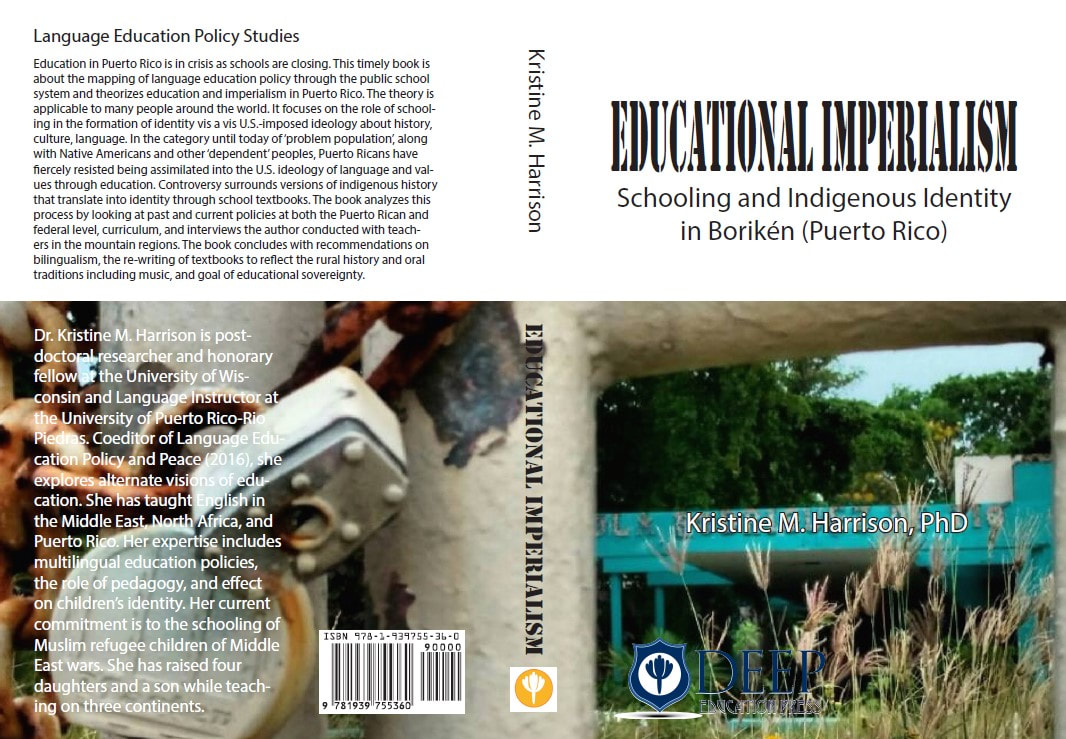|
Puerto Rico has been colonized under both Spanish and U.S. Empires, the latter establishing compulsory schooling and standardizing the language as Spanish for all children using a similar ideology to that of Native American boarding schools. The educational imperialism during the post 1898 U.S. period is evident. This book is about language, education, policies, schooling and identity. It focuses on the role of schooling in teaching young children their identity.
It is written in a highly readable format with short chapters and sections for a wide audience: Puerto Ricans on and off the island, educators, policymakers, historians; and anyone interested in the role of schooling in identity formation and teaching students who and what they are. |
The study the book is based on combines Indigenous methodology and conceptual framework with an Interpretive Policy Approach from actual policies as law to the classroom implementation. The book first lays out the two versions of Indigenous history that could lead to the formation of individual Indigenous identity, which coexists in a racial and cultural mix with African and Spanish elements. The version used supports a distinct vision in terms of political and social processes, and cultural continuity; maintaining survival, cultural and linguistic adaptation, particularly in the extensive mountain regions; while the other marginalizes the Indigenous element by relegating it to the far-off past into an extinct persona. Schools teach the latter.
|
The author analyzes U.S. federal and Puerto Rican territory-level policies; then 4th and 7th grade Spanish and Social Studies curriculum including standards and textbooks; and finally teacher practices— interviews conducted with 28 teachers in the mountain regions—also considered policy as teachers mediate the intended policy outcomes with their own meanings and practices.
While there is a noticeable lack of attention to the Indigenous element in terms of process and survival in the textbooks and teaching, the Puerto Rican level policies, standards and some teacher practices reveal potential openings for a re-interpretation that could lead to curricular and teacher education reform. |




